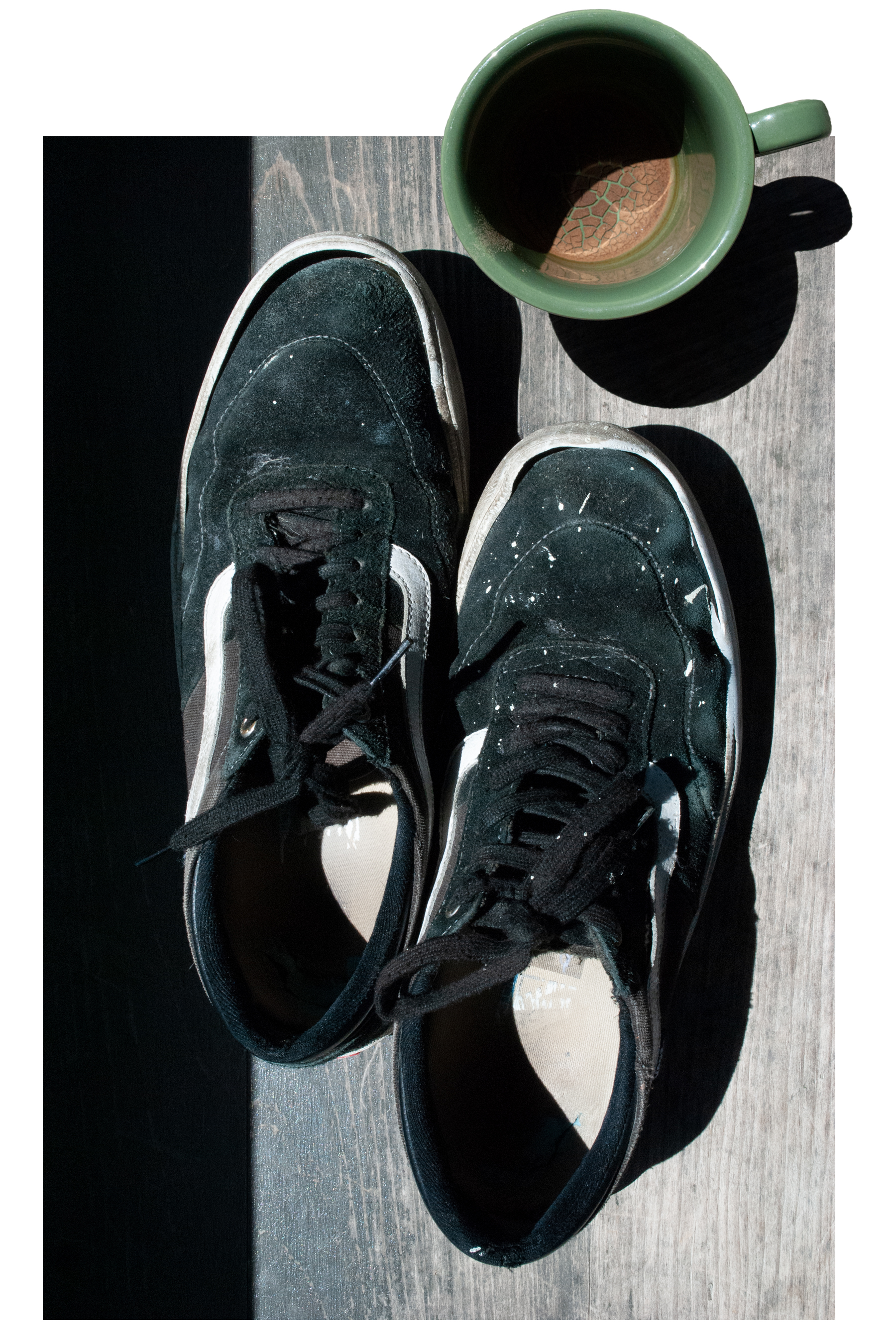


Are you sure you want to reset the form?
Your mail has been sent successfully
Are you sure you want to remove the alert?
Your session is about to expire! You will be signed out in
Do you wish to stay signed in?
This experiment aims to get you to think (and write) about “what a poem is” beyond the usual definitions we get from textbooks.

Step 1
Find an object that has some kind of personal meaning for you. This might be a baseball glove you used as a kid, a pet rock, the peel of an orange you ate this morning.
Step 2
Write down that personal meaning or the story behind the object. Detail this in at least a paragraph. As example, let’s take that pet rock:
This object was given to me as a gag gift one year by my sister. She was always giving me strange things. For some reason, maybe because it was the last gag gift she gave me, I kept this thing. It sits on my desk in my bedroom and sometimes I use it as a paperweight. I’ve never named it, though now that I think about it, the rock looks like it should have the name Gerald.
Step 3
On a new sheet of paper/page, write down a paragraph describing the object empirically, as a scientist would, using your senses. You could talk about what the object is made of, its color and shape, its weight, etc. In our pet rock example:
Gray with white specks and a pink triangular shape, it’s some kind of igneous rock. The pink is probably quartz. It weighs about 2 ounces, about the weight of lime. There are two eyes drawn in permanent marker which no longer smell of permanent marker, though the rock itself smells of mildew. It’s oblong and has a tiny crack on one end where it was dropped. The crack is 2.5 cm long.
Step 4
On a new sheet of paper/page, write down a paragraph in the first-person from the point of view of the object. To continue our example:
I am small and hard and not exactly round, rather misshapen. Mostly I sit on a desk, waiting until someone picks me up. When they do, they hold me and sometimes inspect me, and think of the reason why they still keep me around. Then they put me back down, and I wait for the next time which might be a day, but usually is a week or more. One time, I wasn’t picked up and held for a year, and simply lay in a box in the attic. And when they found me again, it was like meeting me for the first time.
Step 5
Take the first two paragraphs you wrote in Steps 2 and 3 and throw them away (they were warm-ups) or keep them for something else. Now, give that paragraph from Step 4 the title “Ars Poetica” or “Poem” (which is a less falutin’ label for an ars poetica). Our example:
Poem
I am small and hard and not exactly round, rather misshapen. Mostly I sit on a desk, waiting until someone picks me up. When they do, they hold me and sometimes inspect me, and think of the reason why they still keep me around. Then they put me back down, and I wait for the next time which might be a day, but usually is a week or more. One time, I wasn’t picked up and held for a year, and simply lay in a box in the attic. And when they found me again, it was like meeting me for the first time.
Step 6
Revise your new prose poem (for that’s what it is now, complete with a title!) to speak to the idea of what a poem is, how a poem functions, or what meaning poems have in our lives. Sometimes it’s easiest to simply omit parts of the paragraph that don’t quite line up with the (or your) definition of poetry. And sometimes your ars poetica may just point out a particular aspect of what a poem is, not a total definition. The underlying idea here is to come at “what a poem is” from a slant perspective. Here is our paragraph revised with omissions, and then the new version:
Poem
I am small and hard and not exactly round, rather misshapen. Mostly I sit on a desk, waiting until someone picks me up. When they do, they hold me and sometimes inspect me, and think of the reason why they still keep me around. Then they put me back down, and I wait for the next time which might be a day, but usually is a week or more. One time, I wasn’t picked up and held for a year, and simply lay in a box in the attic. And [But] when they found me again, it was like meeting me for the first time.
Poem
I am small and rather misshapen. Mostly I sit on a desk, waiting until someone picks me up. When they do, they hold me and sometimes inspect me. Then they put me back down, and I wait for the next time which might be a day, but usually is a week or more. One time, I wasn’t picked up and held for a year. But when they found me again, it was like meeting me for the first time.
Step 7
Return to Step 1 and try again with a new object!